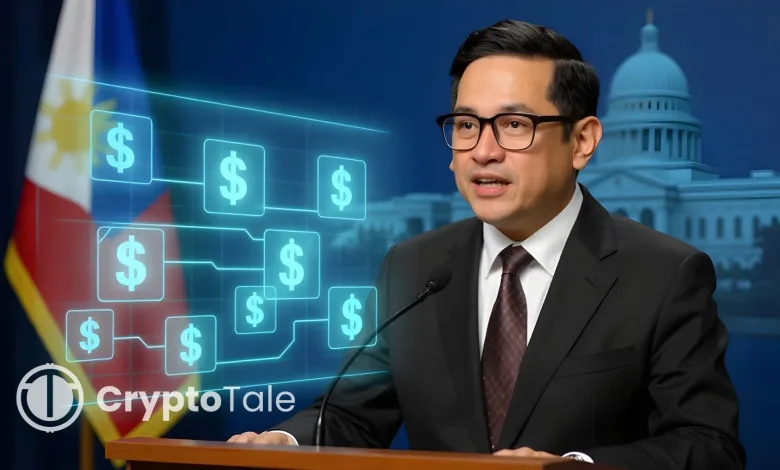Philippines Eyes Blockchain for Transparent National Budget

- Senator Aquino proposes blockchain to track every peso in the national budget system.
- Blockchain could make the Philippine government’s spending fully visible and tamper-proof.
- The initiative reframes crypto tech as civic infrastructure, not just speculative hype.
Philippine Senator Bam Aquino has announced plans to propose a bill that would place the national budget on a blockchain platform. Speaking at the Manila Tech Summit, Aquino highlighted blockchain’s potential for improving public accountability by allowing real-time tracking of government spending.
According to local reports, the proposed system would ensure that each transaction is recorded and made accessible to the public. Aquino stated that such a move would make the Philippines the first country to adopt a fully transparent budget using blockchain technology. He acknowledged uncertainty regarding the level of political support the bill might receive.
The senator’s proposal follows the Department of Budget and Management’s (DBM) recent launch of a blockchain-based document validation system. This existing platform runs on Polygon, a proof-of-stake blockchain compatible with the Ethereum Virtual Machine. The DBM’s system currently supports the on-chain publication and verification of key budgetary documents. These include Special Allotment Release Orders (SAROs) and Notices of Cash Allocation (NCAs), which are now secured and made publicly auditable through blockchain integration.
Strategic Shift Toward Decentralized Civic Infrastructure
Aquino’s initiative signals a broader narrative shift in blockchain’s role in public policy. Rather than focusing on speculative cryptocurrencies or social media-driven enthusiasm, this proposal positions blockchain as a foundational technology for civic integrity.
It reframes institutional trust by using blockchain to guarantee an immutable, transparent public funds record. It would give citizens a platform to see every step in the budgeting process, ensuring that every peso spent is accounted for.
BayaniChain, a blockchain infrastructure company that has facilitated the launch of the DBM initiative, has welcomed Aquino’s proposal. The company, however, made it clear that it is not formally affiliated with the senator or the bill he proposed. The CEO of BayaniChain, Paul Soliman, emphasized that blockchain does not directly eradicate corruption, but rather protects against it by providing checks in the form of tamper-proof digital records. He also spoke about the use of the Prismo platform that allows the encryption, validation, and orchestration of data to assure financial integrity.
Ongoing Developments in Government Blockchain Adoption
Aquino’s comments represent a wider trend among governments exploring the use of blockchain as a way of governmental transparency. The Philippines is rising to become one of the authorities in this respect, as it has already deployed blockchain solutions in budgeting and transport management. Other technology-based projects are being developed, including Project Marissa and the Bagong Pilipinas Transport Chain. The intentions of these projects are to bring transparency and traceability in sectors that have always been susceptible to inefficiency and irregularities.
Another Philippine congressman, Miguel Luis Villafuerte, proposed the idea of a strategic bitcoin reserve, whereby the Bangko Sentral ng Pilipinas (BSP) could acquire 10,000 BTC over a five-year period. Such moves underscore an increased awareness of the use of blockchain in the real-world infrastructure outside digital currencies and crypto-speculation markets.
Related: Philippines Proposes Nation-Backed Bitcoin Reserve Bill
However, the blockchain budget bill of Aquino is still on paper. None of the official bills has been presented to the Senate yet, and the information about the technical execution and legislative approach is still pending.
Should this be successful, the blockchain budgeting system may radically change the way governments think about fiscal transparency. This initiative can contribute to changing the overall perception of decentralized technologies by presenting blockchain as a common good, rather than a speculative asset. It also preconditions other countries to adopt the same approach in their governance, utilizing blockchain, a new era in civic technology.




